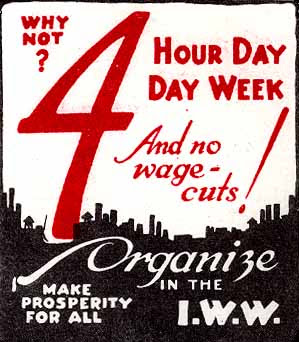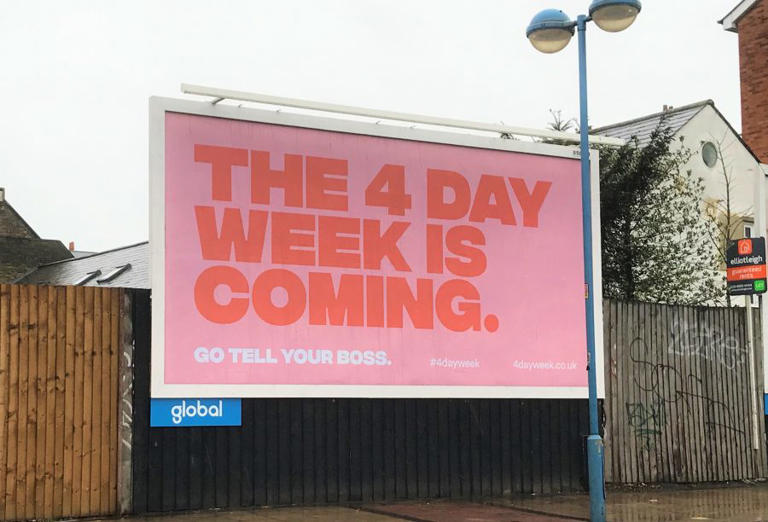UK
In growing numbers, workers are organising to demand a four-day week with no loss of pay in their workplace. They're winning — and here's how you can too.
(4 Day Week Campaign)© Provided by Tribune
The Tory government has done its best to undo almost every improvement to workers’ pay and conditions over the past 13 years, so it’s not often that we get to talk about organising as anything other than a defensive measure. But let’s change that. Let’s talk about organising for a four-day week.
Recent progress towards a 35-hour week has set a decent starting point as a core demand for unions to bring to the bargaining table. In light of the uptake of the four-day week across various sectors, however, along with the highly successful trial of a four-day week at South Cambridgeshire District Council (they’ve saved over £550,000 by filling hard-to-fill roles and expanded the trial to include the council’s refuse workers) and the imminent trial of a four-day week in the Scottish Public Sector (delivery of an SNP manifesto commitment made back in 2021), now is the time to include explicit mention of the four-day, 32-hour working week in union pay surveys and pay claims.
It’s also time for all workers, unionised or otherwise, to demand a four-day week in their workplace. The four-day week is the ideal bargaining chip to have on the table when pay talks hit a dead end. Boss won’t budge on 5%? Add an agreement to trial a four-day week and you could have a deal that keeps everyone happy.
For anyone reading this and weighing up the pros and cons of starting their own workplace campaign, it’s worth noting that the four-day week is an eminently achievable demand.
This is true on the economic side: as a recent landmark study by independent think tank Autonomy showed, up to 9 million workers could be working a four-day, 32-hour working week with no loss of pay in less than a decade from the productivity benefits of AI alone. ‘Could’ is the operative word here, though, because there’s nothing to say that the benefits of artificial intelligence have to be shared out fairly.
As we’ve seen before with John Maynard Keynes’ prediction of a 15-hour week failing to come to pass, technological advances may have made us infinitely more productive per hour, but the greed of a select few has managed to turn that productivity into profits and price rises, instead the free time we should have ended up with.
If we don’t make the case for it, we can be sure that the benefits of AI will just go straight to company bosses through greater profits. As workers and organisers, it’s up to us to make sure that technological advances work for us, rather than against us. The four-day week is the perfect vehicle for doing exactly that.
Thankfully, it’s also true on the organising side, as a number of workplace campaigns have already shown. At one large national charity, Unite members concluded their latest pay campaign with an agreement to trial a 4-day week within the organisation. Last year employees at Friends Of The Earth campaigned on, and won, a permanent four-day, 30-hour week. Workers at digital mobilisation agency Forward Action made the case for a four-day week to their directors back in September 2022; since then they’ve run a successful pilot, which ended in March, and signs are looking good for them to keep the shorter week as a long-term fixture.
Many other campaigns have seen the demand for a four-day week bring overwhelming numbers of colleagues together. This November, PCS members at a major government department started their campaign for a four-day week with a Teams launch event that drew together over 700 highly engaged civil servants.
These success stories and examples of campaigns just ramping up are crucial, because in order to win better pay and conditions the first thing you need is buy-in from your colleagues, and one of the best ways to secure that buy-in is to show your demands are winnable. In this way you can build a campaign backed by colleagues who may not have challenged their boss on working conditions before. And in time, these workers will come out the other side with a better, deeper understanding of their workplace and the power structures that govern them. In the long term, these efforts can help raise political consciousness and create a better world for all.
That, of course, is before we even get onto the benefits that come after implementation. An extra day off means a nation of workers living happier, healthier lives. We’ve seen workers use their free time to engage in volunteering, becoming more engaged with their local community as a result. Others have more time and energy for political activism. We hope many will be emboldened to take what they have learnt from their four-day week campaigns and apply it to other issues in their workplaces, their industries, and to the economy as a whole.
The four-day week means time to breathe. It means time to engage with what’s going on around us. Time to connect with one other. Time for rest, but also, time for action. The question is: what are we waiting for?
 |
| 1933 |


No comments:
Post a Comment